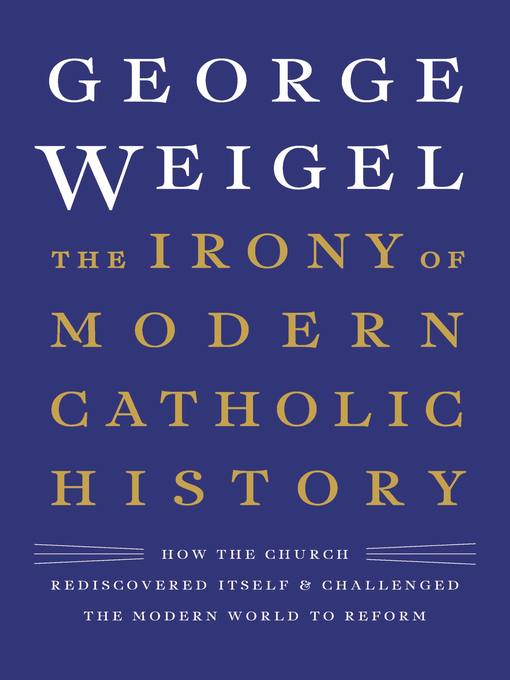
The Irony of Modern Catholic History
How the Church Rediscovered Itself and Challenged the Modern World to Reform
کتاب های مرتبط
- اطلاعات
- نقد و بررسی
- دیدگاه کاربران
نقد و بررسی

July 1, 2019
A fascinating look at the Catholic Church's encounter with modernity. Ethics and Public Policy Center senior fellow Weigel (The Fragility of Order: Catholic Reflections on Turbulent Times, 2018, etc.) dives into the past two centuries of Catholic history to explore how the church has rejected, explored, and finally embraced modernity. In a work that will appeal to anyone with a genuine interest in church history, the author reintroduces readers to the embattled, and sometimes embittered, pre-Vatican II popes before exploring the more familiar church of today. Weigel uses a five-act format to explain the history of Catholicism in modernity, with each act covering a specific era in the church: against, exploring, embracing, critiquing, and, finally, converting modernity. The author fully examines the irony that the modernism feared and rejected by 19th-century popes and clerics would eventually come to shape, and even be shaped by, Catholicism. After some background, Weigel's history begins in earnest with Pope Pius IX, whose anti-modern stance is best remembered via the Syllabus of Errors, which flatly rejects "progress, liberalism, and modern civilization." The author then moves on to Leo XIII, "the man who would set the Church on the road to a sometimes skeptical, sometimes intrigued exploration of modernity, which would lead to developments in this drama that could not have been foreseen in Leo's time." This Leonine revolution would impact the papacy and the church throughout the 20th century, culminating in the years of John Paul II and Benedict XVI. Harkening back to his 2013 book Evangelical Catholicism, Weigel concludes with the church's "converting" modernism in the 21st century, embodied by "the challenging, puzzling, and, to some minds, deconstructive pontificate of Pope Francis." Weigel is at once highly intellectual and thoroughly accessible as a writer as well as balanced and opinionated. A must-read book for Catholics and devotees of religious history.
COPYRIGHT(2019) Kirkus Reviews, ALL RIGHTS RESERVED.

























دیدگاه کاربران